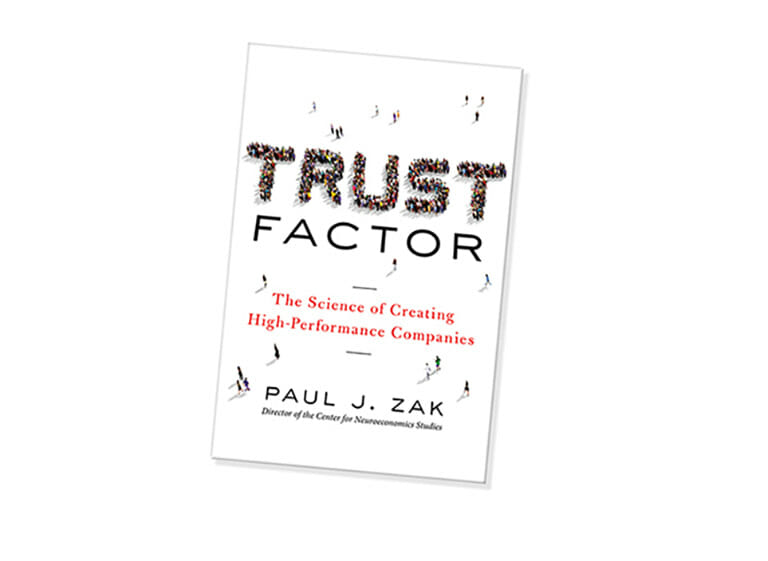Trust Factor Offers Scientific Building Blocks for High-Performance Companies

Claremont Graduate University’s Professor of Economic Sciences, Psychology and Management Paul J. Zak has authored a new book explaining how to build high-trust cultures in order to improve business outcomes.
In Trust Factor: The Science of Creating High-Performance Companies (American Management Association, 2017), Zak provides specific and actionable ways that organizations can design and manage their cultures, improving collaboration, profitability, and employee retention. Rather than trying to increase employee engagement with karaoke Fridays or taco Tuesdays, Trust Factor uses the latest neuroscience to create cultures where work has meaning and employees are empowered with the freedom to excel.
In the early 2000s, Zak’s pioneering research determined that the brain chemical oxytocin motivates people to be cooperative and trustworthy. Zak wondered whether oxytocin activity in the brain might affect employee productivity, and so began measuring the brain activity of people while they worked.
Loading...
Zak’s research found that employees who engage in behaviors that increase oxytocin levels of their colleagues are not only more engaged and productive, they enjoy work substantially more. Trust Factor uses the latest research in the science of trust to explore not only how to design and maintain it, but how to avoid stifling it. Among the most exciting findings are that those who work in high-trust organizations are paid more and are substantially happier with their lives outside of work than are those burdened by working in low-trust companies. The results of Zak’s research show that a culture of trust improves the triple bottom line: It is better for employees, improves organizational performance, and strengthens societies. The book offers a thoughtful, evidence-based approach using examples from numerous companies, including Zappos, Google, Herman Miller, and dozens more.
“The science shows that creating an employee-centric culture is good business,” says Zak, who specializes in the burgeoning field of neuroeconomics and directs CGU’s Center for Neuroeconomics Studies. “My research uses multiple sources of evidence to show that people working in high-trust organizations are more productive, have more energy at work, collaborate better with their colleagues, and stay with their employers longer than people working at low-trust companies. They also suffer less chronic stress and are happier with their lives, and these factors fuel stronger business performance.”
Doug Rauch, former CEO of Trader Joe’s and Drucker School of Management alumnus (EMBA, 1994), calls the book essential reading for any business leader. “[It’s] a must-read for anyone interested in the true secret of every successful business: a robust, healthy culture. [Zak] not only shows us why cultures of trust are critical, but more importantly, he provides a wealth of data and practical guidelines for how to build a thriving organization.”
Trust Factor: The Science of Creating High-Performance Companies is available January 17, 2017, across all major book sellers. A book signing caps off the second annual Western Positive Psychology Association Conference, which takes place January 21, 2017, on the Claremont Graduate University campus. Zak will also speak and sign books at the Redlands, CA Barnes & Noble on February 4 at 1:30 p.m.